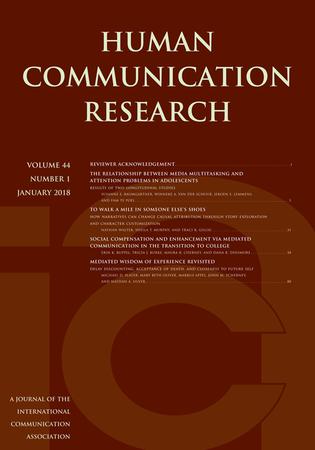更好地问你的邻居:在俄乌冲突期间重新谈判媒体信任
IF 4.4
1区 文学
Q1 COMMUNICATION
引用次数: 6
摘要
在暴力冲突期间,对信息来源的评估往往是一项复杂的挑战。社交互动在调解受众信任方面发挥着关键作用,因为他们在媒体和社交网络上传播有争议的信息。本研究使用焦点小组和个人访谈,在俄乌冲突的宣传饱和环境中进行,以调查受众如何发展和协商将信任分配给中介和社会来源的做法。它确定了三种核查做法,每种做法都基于不同的务实信任概念:依赖意识形态上的密切来源;对个人来源持怀疑态度,同时相信媒体是一种制度;或者制度上的不信任和愤世嫉俗的幻灭。每种做法都嵌入参与者的社会环境中,既提供信息,又有助于协商适当的核查做法。文章最后讨论了对媒体信任和社会对媒体理解研究的启示。本文章由计算机程序翻译,如有差异,请以英文原文为准。
Better Ask Your Neighbor: Renegotiating Media Trust During the Russian–Ukrainian Conflict
During violent conflict, the evaluation of information sources often presents a complex challenge. Social interactions play a critical role for mediating audiences’ trust as they negotiate contested information spreading across the media and social networks. This study uses focus groups and individual interviews, conducted in the propaganda-saturated environment of the Russian–Ukrainian conflict, to investigate how audiences develop and negotiate practices for assigning trust to the mediated and social sources. It identifies three verification practices, each based on a different notion of pragmatic trust: Reliance on ideologically close sources; skepticism toward individual sources while trusting media as institution; or institutional distrust and cynical disillusionment. Each practice is embedded in participants’ social environment, which both supplies information and helps negotiating appropriate verification practices. The article concludes by discussing implications for studies of media trust and socially shaped understanding of the media.
求助全文
通过发布文献求助,成功后即可免费获取论文全文。
去求助
来源期刊

Human Communication Research
COMMUNICATION-
CiteScore
8.20
自引率
2.00%
发文量
28
期刊介绍:
Human Communication Research is one of the official journals of the prestigious International Communication Association and concentrates on presenting the best empirical work in the area of human communication. It is a top-ranked communication studies journal and one of the top ten journals in the field of human communication. Major topic areas for the journal include language and social interaction, nonverbal communication, interpersonal communication, organizational communication and new technologies, mass communication, health communication, intercultural communication, and developmental issues in communication.
 求助内容:
求助内容: 应助结果提醒方式:
应助结果提醒方式:


